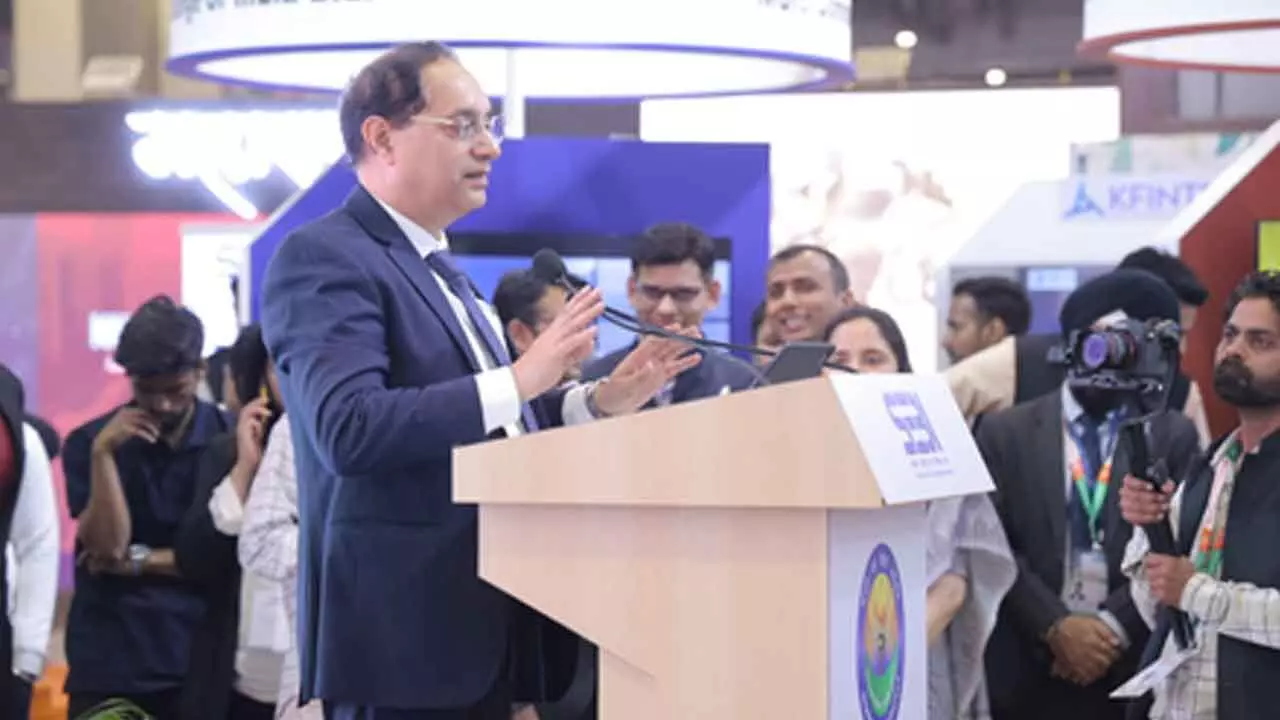SEBI mulls inclusion of REITs, InvITs in market indices to boost liquidity
Sebi chief highlighted that the regulator is also evaluating additional measures to ease doing business for these institutions
SEBI mulls inclusion of REITs, InvITs in market indices to boost liquidity

Sebi is examining a proposal to broaden the pool of liquid mutual fund schemes in which REITs and InvITs can invest, while ensuring investor protection. The regulator is exploring whether private InvITs may be allowed to invest in greenfield projects, provided adequate safeguards are in place
SEBI Chairman Tuhin Kanta Pandey on Friday said the markets regulator is actively studying whether Real Estate Investment Trusts (REITs) and Infrastructure Investment Trusts (InvITs) should be included in major market indices. The move is expected to boost liquidity for these instruments significantly.
He said the move would be done through a calibrated, step-by-step approach and could significantly improve liquidity, visibility and institutional participation in these investment vehicles.
Speaking at the National Conclave on REITs and InvITs-2025, Pandey noted, “Sebi will work with all stakeholders to facilitate the inclusion of REITs in indices.” REITs are companies that own and operate real estate.
They offer investors an opportunity to own high-priced real estate and earn dividend income to boost their capital over time. He added that once included, these instruments would naturally improve liquidity.
The Sebi chief highlighted that the regulator is also evaluating additional measures to ease doing business for REITs and InvITs (infrastructure investment trusts).
As part of these efforts, Sebi is examining a proposal to broaden the pool of liquid mutual fund schemes in which REITs and InvITs can invest, while ensuring investor protection.
Pandey further said the regulator is exploring whether private InvITs may be allowed to invest in greenfield projects, provided adequate safeguards are in place.
At the same time, Sebi is actively engaging with institutional investors to deepen their participation in these instruments. To support this push, Sebi has been coordinating with the Ministry of Finance and several state governments to accelerate public asset monetisation, he said.
“We are working with Insurance Regulatory and Development Authority of India (IRDAI), Pension Fund Regulatory and Development Authority (PFRDA) and Employees Provident Fund Organisation (EPFO) to facilitate greater participation from their entities under their purview,” he added.
While the opportunities are vast, Pandey acknowledged that the market for these instruments is still nascent. Sebi will continue to provide the necessary framework and guardrails, he said, but emphasised that industry sponsors, managers, advisors and intermediaries must believe in the asset class’ potential and help build depth and liquidity.
In the context of India’s progress, he noted that global REIT markets are far more mature. Regarding retail participation, Pandey noted that investor awareness remains low.
Surveys show that awareness of these instruments is only around 10 per cent, with penetration below 1 per cent. “This must change,” he said, stressing that retail investors should begin viewing REITs and InvITs as natural additions to their portfolios, alongside equities, mutual funds, bonds and bank deposits.
Over the past few months, Sebi has introduced several measures aimed at making these products more retail-friendly, enhancing liquidity and strengthening regulation.
A major step in this direction came in September, when the Sebi board approved classifying REITs as equity, while retaining the ‘hybrid’ classification for InvITs. With this reclassification, mutual fund investments in REITs will now fall within their equity allocation limits, making REITs eligible for inclusion in equity indices.
This is expected to pave the way for enhanced investment flows from mutual fund schemes. “The reclassification as equity will enable equity mutual funds to allocate more meaningfully and facilitate index inclusion and passive flows,” Pandey said, adding that it would also create more room for funds to invest in InvITs on the hybrid side.
In addition, the regulator has lowered entry thresholds for InvITs, a move expected to expand the pool of potential participants and further improve liquidity.

